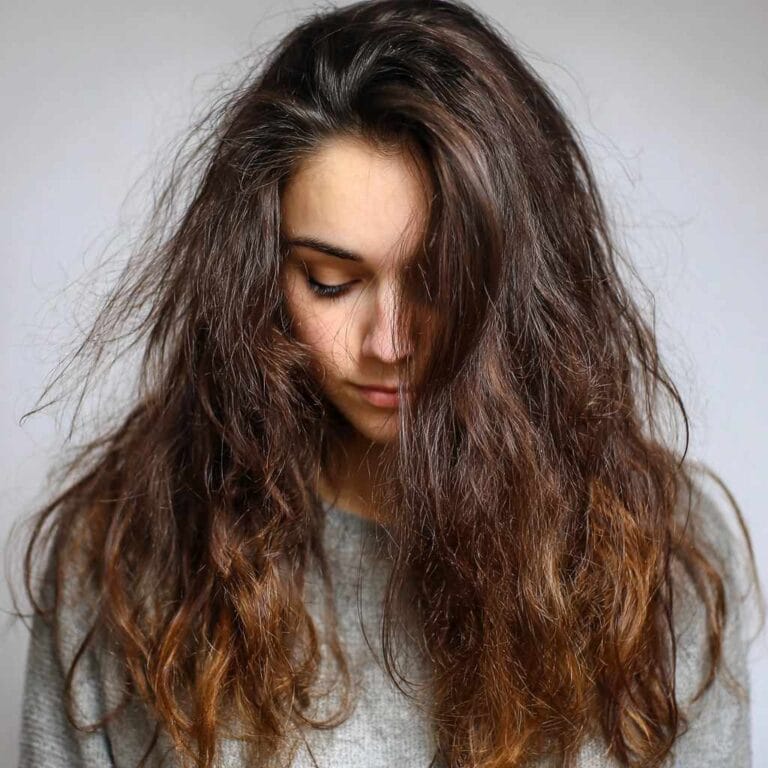7 Reasons Your Hair Growth Has Stopped and How to Fix them naturally. Discover common causes like stress, poor diet, and hair damage, and learn effective tips to boost healthy hair growth fast. It is a question many people ask when their hair seems stuck at the same length. Hair growth can be affected by a variety of factors, including diet, stress, hormonal changes, and hair care habits. Understanding the root causes is the first step toward healthy, longer hair. In this blog, we’ll explore the most common reasons your hair growth has stopped and provide practical solutions to help you get your hair growing again.

7 Reasons Your Hair Growth Has Stopped and How to Fix It
Diet and Lack of Nutrition
Reason: Hair is made of keratin, a protein. Without enough protein, vitamins, and minerals, your hair can become weak, brittle, and stop growing. Deficiencies in biotin, vitamin D, iron, and zinc are often linked to hair loss or slow growth.
Solution: Eat a balanced diet rich in lean proteins (eggs, fish, beans), leafy greens, nuts, seeds, and whole grains. You can also consider supplements if recommended by your doctor.
High Stress Levels Slowing Hair Growth
Reason: Stress increases cortisol levels, which can disrupt the natural hair growth cycle. This often leads to a condition called telogen effluvium, where hair prematurely enters the resting phase and falls out.
Solution: Reduce stress with regular exercise, meditation, yoga, journaling, or deep-breathing techniques. Getting 7–8 hours of sleep each night also helps balance stress hormones.
Disclosing Amazon Affiliate Links
Hormonal Imbalances Affecting Hair Health
Reason: Conditions like thyroid disorders, PCOS, and menopause can cause hormonal fluctuations that slow or stop hair growth. Excess androgens (male hormones) can also shrink hair follicles and thin hair.
Solution: Consult a doctor if you suspect hormonal issues. With proper diagnosis, treatments like medication, lifestyle changes, or hormone therapy can help restore balance and improve hair growth.
Heat Styling and Chemical Damage
Reason: Overusing straighteners, curling irons, blow dryers, hair dyes, and chemical treatments weakens the hair shaft, causing split ends and breakage that make hair appear like it’s not growing.
Solution: Limit heat styling, use heat protectant sprays, and avoid harsh chemicals. Let your hair air-dry when possible and get regular trims to prevent split ends from traveling up the strand.
Scalp Issues Blocking Hair Growth
Reason: A healthy scalp is the foundation of hair growth. Problems like dandruff, psoriasis, excess oil, or clogged follicles can suffocate hair roots and prevent new growth.
Solution: Keep your scalp clean and exfoliated. Use anti-dandruff or medicated shampoos if needed. Regular scalp massages with natural oils (like coconut or castor oil) can improve blood circulation and stimulate growth.
Genetic Factors
Reason: Sometimes slow hair growth or thinning is linked to genetics. If your family has a history of hair loss, you may notice early signs like thinning at the crown or receding hairline.
Solution: While you can’t change genetics, you can slow down hair loss with proper nutrition, gentle hair care, and clinically approved treatments like minoxidil (after consulting a dermatologist).
Wrong Hair Care Routine and Habits
Reason: Overwashing, using harsh shampoos, tight hairstyles, or skipping conditioner can weaken hair. Neglecting your hair’s needs often leads to breakage and stunted growth.
Solution: Wash your hair 2–3 times a week with a mild shampoo, always condition after washing, and avoid hairstyles that pull on your scalp (like tight ponytails or braids). Protective styles and satin pillowcases can also reduce all breakage.
